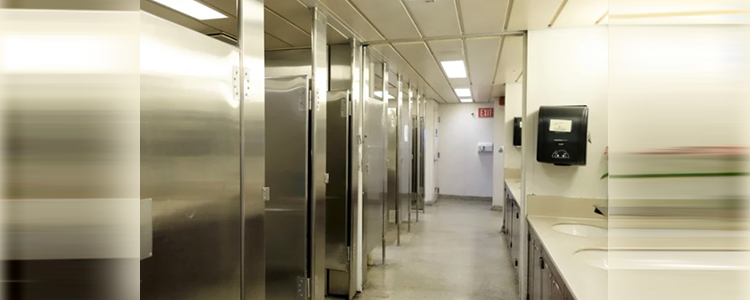“The county’s solid waste program does not break even by any stretch of the imagination,” Orcas Council member Richard Fralick said recently.
It could be argued that success breeds failure. When we reduce the amount of trash we create, we also decrease income for the county’s solid waste system. “It’s the tipping fee paradox” says Pete Moe, Orcas Fun House Director and a member of the Solid Waste Advisory Committee. “The way the system is set up, we are punished for recycling and reusing.”
At tomorrow’s County Council meeting, at 2 p.m., Council members will discuss the Sutton Road waste transfer station, considering if the proposal to build a large facility to accommodate individual car- or truck-loads on San Juan Island make sense, according to Fralick.
In a statement issued by Jon Shannon, Public Works Director, Ed Hale, Utilities Manager, Steve Alexander, Solid Waste Program Manager and
Pete Rose, County Administrator at tomorrow’s meeting, it is stated:
The county council is conducting a series of workshops to discuss the solid waste system funding issue and determine which of several alternatives is best suited to adequately fund the system to achieve the council policy goals. The current system is based on revenue from a single major source – garbage tipping fees. Since this method of funding the system is entirely based on receiving a large enough volume of garbage to support all services, capital and legacy costs it is contradictory to the policy goal of reducing waste volume by reducing, reusing and recycling.
A new funding model is needed to provide a method of revenue generation that is not entirely based on increasing volumes of garbage.Cost considerations are driving the Council, as the County’s Solid Waste System is experiencing a significant operating deficit, and the numbers are further complicated by the mandatory re-construction and environmental clean-up of the San Juan Island Transfer Station that has been out of compliance with the Department of Ecology for several years.
“There are significant savings in managing one garbage truck vs. dozens of cars,” explained Moe. “However San Jun Island will end up with a far less useful waste management facility, and curb-side pick up prices set by a private company.”
San Juan Sanitation, a private company, owns the rights to pick up curbside trash — “and everybody’s garbage, it turns out,” says Fralick. “Theoretically, we are not supposed to take garbage off-island.” San Juan Sanitation transfers trash pickup at the island transfer stations and then off-island to recycling centers and land fills.
According to Public Works Director Jon Shannon, “The five components of the County Solid Waste Handling System include Collection, Transfer, Transport, Processing, and Disposal. Currently 4 of the 5 elements are done exclusively by the private sector.
“The public sector (county) is involved with the transfer of solid waste and recycled materials. In addition, the county provides certain other services, such as the collection, transfer and disposal of household hazardous waste (HHW).”
According to Fralick, the council has learned that one truck can deliver 200 carloads of solid waste, and can be processed in about 20 minutes. “The [Sutton Road] facility can be smaller with less traffic volume” if solid waste and recyclables are segregated at curbside collection, , and only garbage trucks are allowed, he says.
“The question before the Council is: Does the proposal to build a large facility to accommodate large property haulers on San Juan Island make sense?”
It is estimated that a transfer station at Sutton Road for Garbage Trucks only (San Juan Sanitation) would cost $1-2 million dollars. It would cost $5-6 million to build a public facility that could also host recycling, an Exchange, and composting, as the SWAC had recommended, Moe said.
After looking at the preliminary numbers with the Public Utilities District, Fralick estimates that the cost of operations of the transfer station if there was curbside pickup of recyclables would be reduced by $140,000 per year.
The Council is pressured to decide early this year how to get the San Juan Transfer station in compliance with a Department of Ecology ruling from last April. That ruling found that runoff from the transfer station is polluting surface and ground water.
Moe says a policy of privatized, curb-side recycling, “may mark the end of free recycling. San Juan Sanitation, a private company, would be the hauler, and would set the rates.”
Fralick said that he would surprised if a decision to institute curbside recycling pickup on San Juan Island has county-wide ramifications.
But, George Post, Orcas resident and former SWAC chairman and manager of the Orcas Exchange, protested the idea when it was presented to the SWAC last November. “We are abdicating control of what we do with our garbage,” Post said.” By privatizing solid waste, we effectively hand over control of the waste stream to a private company.”
Earlier this year the SWAC and the Public Works Department had recommended that the council authorize the construction of a new transfer station on San Juan Island, on a new 27-acre site west of Friday Harbor.
The new site would have facilitated not only garbage transfer and recycling, but potentially composting, construction waste recycling, and a re-use facility, much like The Exchange on Orcas, said Moe.
The recommendation was rejected by the council which chose instead to keep the existing Sutton Road site.
**If you are reading theOrcasonian for free, thank your fellow islanders. If you would like to support theOrcasonian CLICK HERE to set your modestly-priced, voluntary subscription. Otherwise, no worries; we’re happy to share with you.**







